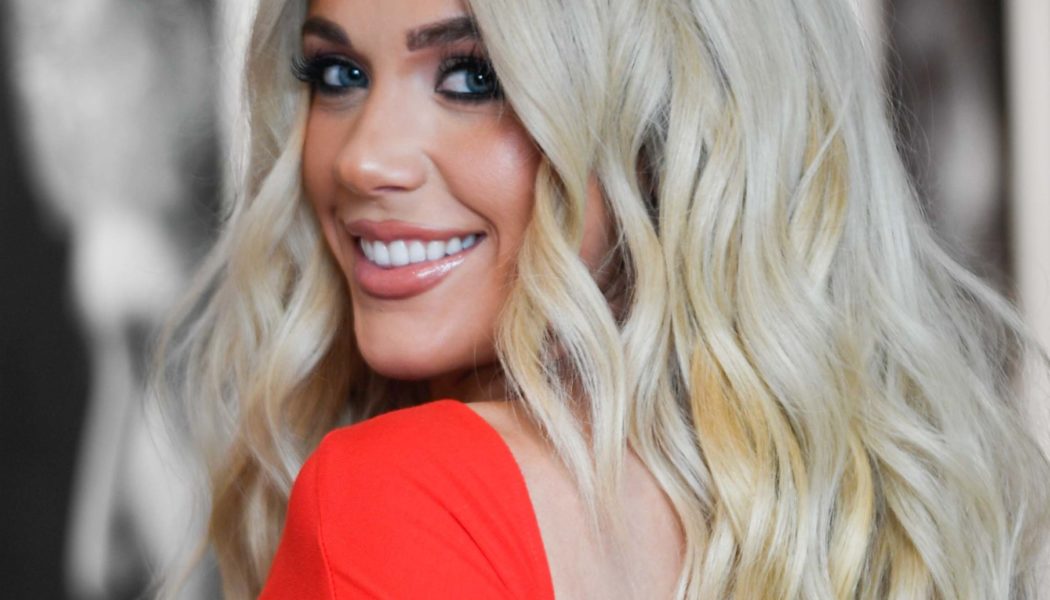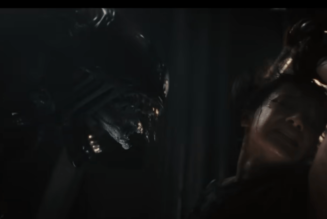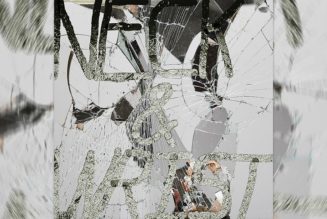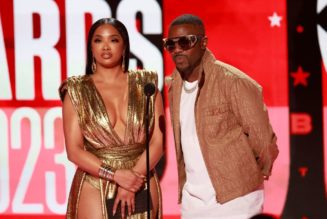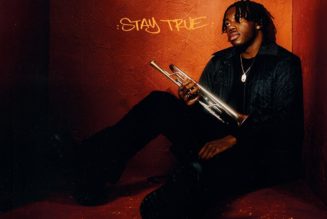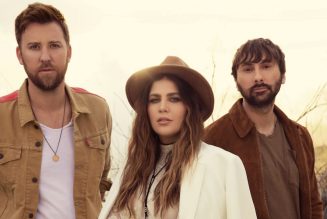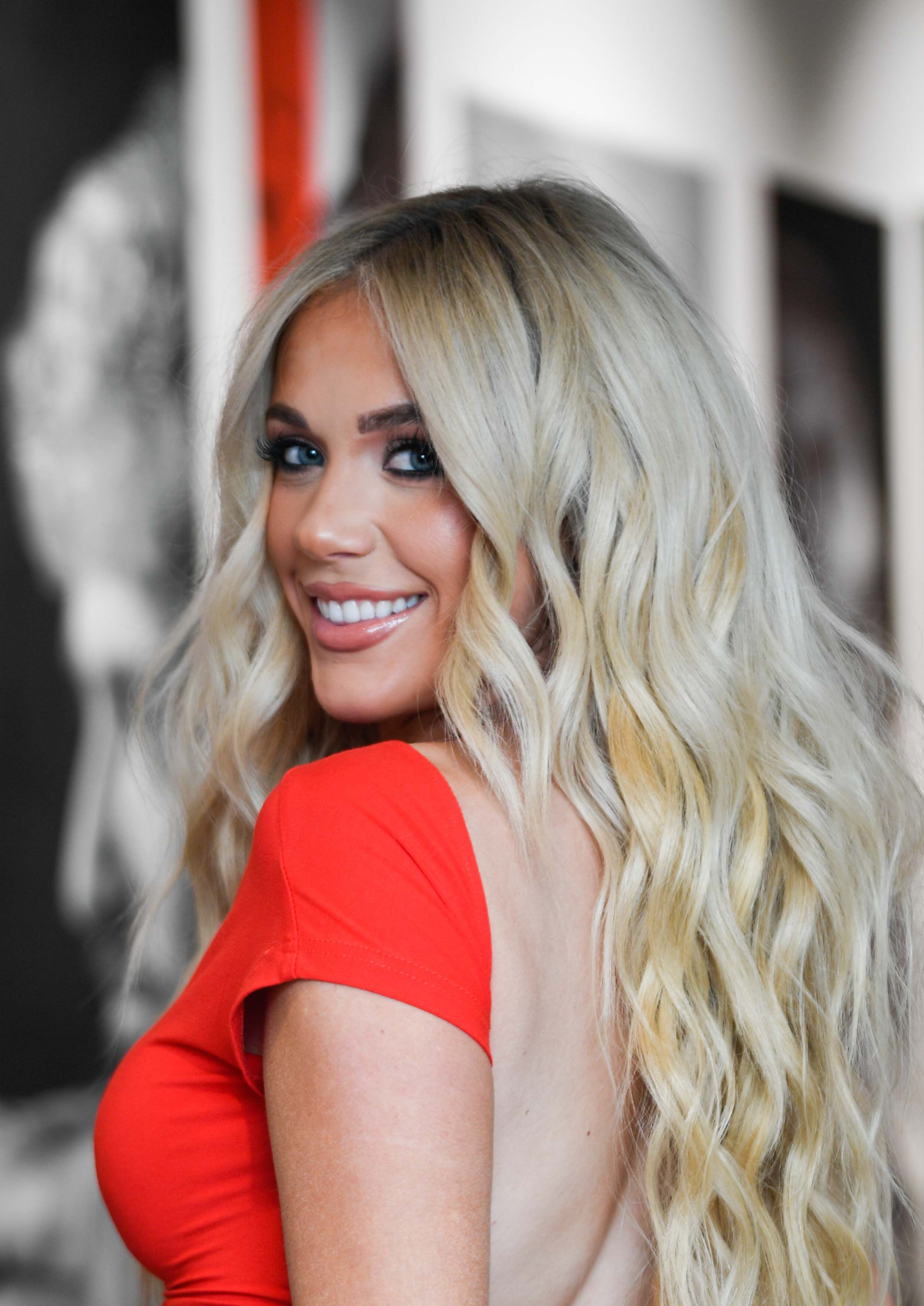
The 25-year-old Georgia native expands beyond “Tennessee Orange”‘s success to greater Music City renown
25-year-old Megan Moroney isn’t just a blond-haired small-town ingenue who loves gossiping with her hair colorist about what color Southeastern Conference college football T-shirt her latest beau is wearing.
The University of Georgia graduate is, yes, the singer-songwriter whose success of late in Music City is predicated on the viral popularity of singles “Tennessee Orange” and “Hair Salon.” However, with “Lucky” — her just-announced debut album — out on May 5, a need exists to begin adding substance to her sudden streak to stardom.
She’s been produced by Sugarland’s Kristian Bush, received early co-signs from stars like Chase Rice (who booked her — only if she could write original songs — while she was still in college and seeing her open for a Jon Maroney gig her sorority booked that she opened playing covers) and is — like every other aspiring star in Nashville — making the same songwriting sessions, playing the same 20-minute opening slots, songwriter rounds at Live Oak bar near Music Row, plus Whiskey Jam appearances.
The keys to why Moroney — as compared to every other noteworthy performer on the rise in Music City — is having a moment are numerous. They also portend a career with the potential for significant depth, reach and scope.
That depth and scope are significant. Country music is a century-old genre where hackneyed, liquor-soaked star-making narratives and stereotype-driven biographies create boilerplate-made superstardom. However, in the case of Moroney’s work to date, she’s — more than anything — a pop-culture-influenced Southerner whose pop-aimed tastes are most clearly aligned with denim, rhinestones and buckets of beer.
She graduated with a music industry degree from her beloved University of Georgia while growing up surrounded by a musical family. That helps. However, more than that, the secret of “Tennessee Orange”‘s success lies not in the 123-year-old rivalry between the schools. Much more simply, it starts with the slight rasp in Moroney’s voice as she sings that the person she’s met is blue-eyed.
TikTok virality is predicated on the idea that it’s as much what a song is saying or how it’s played as the tonality in which something is presented. Thus, there’s something inherently youthful and as much commonplace as it is connective about Moroney’s voice that made “Tennessee Orange” virally successful via the platform.
That voice sings songs that Moroney says are “based on memorable, strong personal experiences, like feeling disgusted and thinking my parents would kill me for wearing a University of Tennessee t-shirt, or, in the case of ‘I’m Not Pretty,’ my ex-boyfriend’s new girlfriend convincing herself that she’s prettier than I am — after lurking on my Instagram feed at 2 a.m. in the morning and accidentally liking, then unliking, an old Spring Break picture of me from 2016 in PCB (Panama Beach City, Florida),” she tells The Tennessean while sitting at Sony’s downtown Nashville offices.
Her calling card past her initial success will also hinge upon just how antagonized, emo and sad 20-something women want to be about the fresh wounds of heartbreak.
She’s 25. The age is unique because it’s within a window where high school and college are ripe in her memory. She’s not Taylor Swift moving to Nashville at 14, nor Carly Pearce being married and signed to a label by 29.
Twenty-five means that you’re old enough to recall vividly while being interviewed, traveling to Music City while a college student and trying and failing to enter downtown and Lower Broadway Nashville bars with a fake ID. It also means that you’re old enough to remember freaking out when you (illegally) get into a downtown bar and almost step on Miranda Lambert. The age also highlights that you’re similarly stunned when you make your Grand Ole Opry debut five years later and play on the same night at Vince Gill.
“It’s all so crazy right now. I can’t believe all of this is happening. It’s surreal — people know my songs sometimes before I start singing them. My fans are invested in my success. Someone pinch me,” Moroney says.
Moroney’s schedule — as highlighted by the video for “Tennessee Orange” — still involves a semi-frequent schedule of (legally) hitting the bars and honky-tonks up and down Broadway.
She notes that she reminds her team that the excursions where she’s “going out, living and doing what everyone is doing” are essential for her songwriting inspiration.
Those nights yield songs like “Traitor Joe.” Cheating-induced heartbreak becomes something as commonplace as a bottle of “three buck chuck” from the national chain grocery store with a sound-alike name.
Regarding relatability, in a manner consistent with Hailey Whitters’ slow-rising country radio hit “Everything She Ain’t,” Moroney’s “Why Johnny” pays homage to the tribulations in the relationship between Johnny and June Carter Cash, similar to how Whitters leans into the notoriety of Hank Williams and his first wife, Audrey.
Co-written with pop/R&B songwriter Connor Matthews, “Why Johnny” deviates from the expectation of celebrating the “Walk The Line” vocalist and his performer wife. Because Moroney was not entirely well-schooled enough in the Carter and Cash family legacies, she researched the tandem to aid her process.
The work yielded a novel, next-generation take on the pair’s lives.
“[Johnny Cash] was an alcoholic with a pill problem while June had a whole career happening — they were real people having real problems. Asking the question of why she stayed with him until his life changed course was cool to me because I’ve had a similar experience to her in my life. I wanted to know why she decided to do something that maybe I didn’t do.”
“I’m still as nervous playing in downtown Nashville or crowds on tour as I was when I was playing in my sorority house in college,” Moroney notes.
“If you know me and my story, many things (both good and bad) happened to get me here and I just feel very lucky. I couldn’t live out this dream without the support of my fans, family, and team.”
